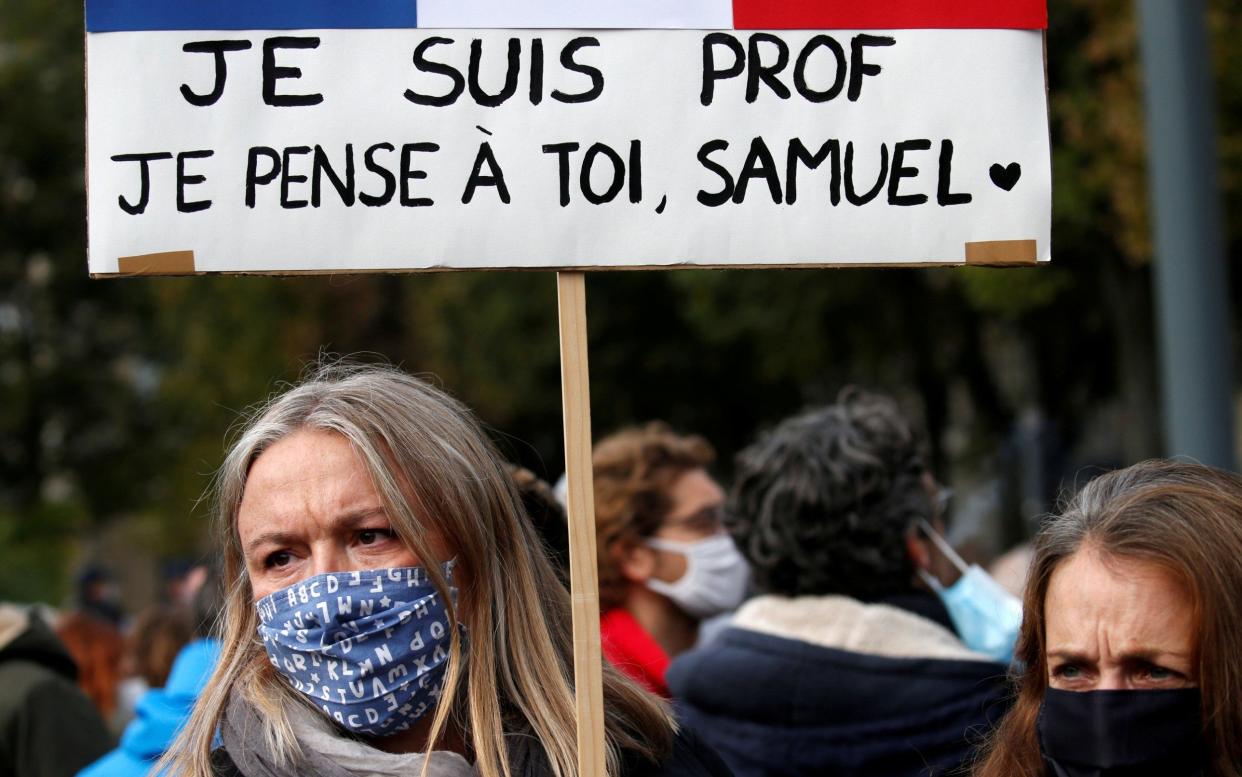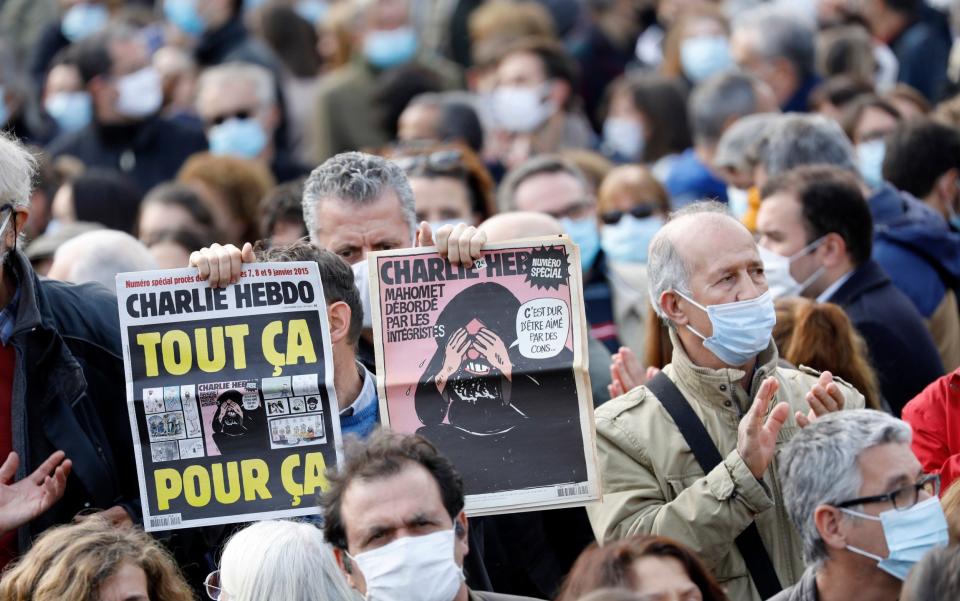Analysis: France's Muslims fear further isolation amid calls for tougher action on militant Islam

The beheading of a teacher has prompted calls for tougher action against militant Islam from the French Right and Left, but it has also deepened a sense of alienation among the country’s Muslims.
Most unreservedly condemn the killing and other acts of terrorism, but many do not understand why teachers need to show what they see as gratuitously offensive cartoons of the Prophet Muhammad in classes about freedom of expression.
Jacques Thomas, a teacher at a technical college in a predominantly immigrant, blue-collar suburb of Paris, said many of his students believe Muslims are often unfairly singled out for insults in the media.
“Last month one teenager asked me why ‘you French’ don’t want to let Muslims live as Muslims in France. He was talking about bans on the full-face veil in public and headscarves in schools, and the row over Muslim women going to beaches wearing the burkini [a swimsuit that covers most of the body]. But he also asked me why it was OK for [the satirical weekly] Charlie Hebdo to publish ‘vulgar’ cartoons of the Prophet when any depiction of Muhammad is considered blasphemous by Muslims.”
Mr Thomas, 54, said he felt that he was walking on eggshells when discussing such subjects with students who see themselves as victims of a two-tier education system: “They are being taught to become technicians and many will end up as plumbers or electricians, so they’re not used to abstract concepts. Freedom of expression is difficult for them. They think children in more affluent areas get a different kind of schooling that positions them for higher-status jobs in the professions. They feel like outsiders in a culture that leaves little place for them.”

The doctrine of laïcité, or secularism, is cherished by both the French Right and the Left, along with “liberty, equality and fraternity,” the values enshrined in the national motto.
Secularism stems from a 1905 law, at a time of conflict with the Catholic Church, designed to ensure the separation of Church and State and banish religion from public institutions.
But some French Muslims believe it now fosters Islamophobia.
After the beheading, Damien Abad, the leader of the centre-Right Republicans in the National Assembly, renewed calls to ban pork-free school dinners for Jews and Muslims – a position considered intolerant by many.
Samir Mermouri, a Parisian father of three, said: “I don’t see why my children should have to eat pork at school. At the moment they’re offered alternatives when pork is on the menu. I don’t understand why some politicians think ending that will somehow help prevent terrorism. It just makes Muslims feel marginalised and that’s dangerous because Islamists will try to exploit disaffection among the young to promote violence and hatred.”
Fathia Agad-Boudjhalat, a history teacher who uses cartoons of the Prophet Muhammad, Emmanuel Macron and Donald Trump in classes about free speech, told French radio: “One student told me it was completely legitimate to kill someone who failed to show respect to the Prophet. It comes from what they hear in their families.”
Since the 2015 attacks on Charlie Hebdo’s office and the Bataclan music venue, polls suggest that views have hardened on France’s secular identity and divisions are growing. Before the attacks, most people said the Muhammad cartoons were an “unnecessary provocation”.
Now, a majority support their publication. But nearly 70 per cent of Muslim respondents believe it was wrong.
The gulf was highlighted by the decision on Tuesday by a weekly news magazine, L’Express, to publish the Charlie Hebdo cartoons. “Fear is everywhere. But we cannot let it prevail,” the magazine said on its website.

